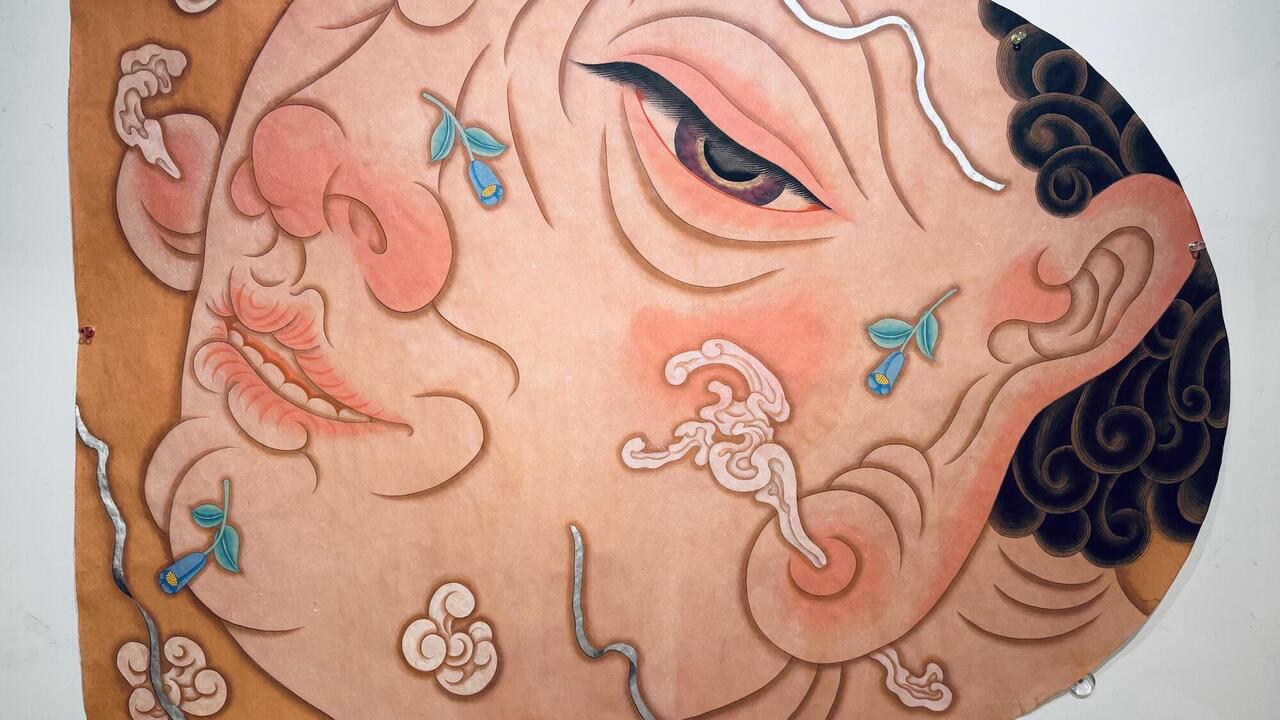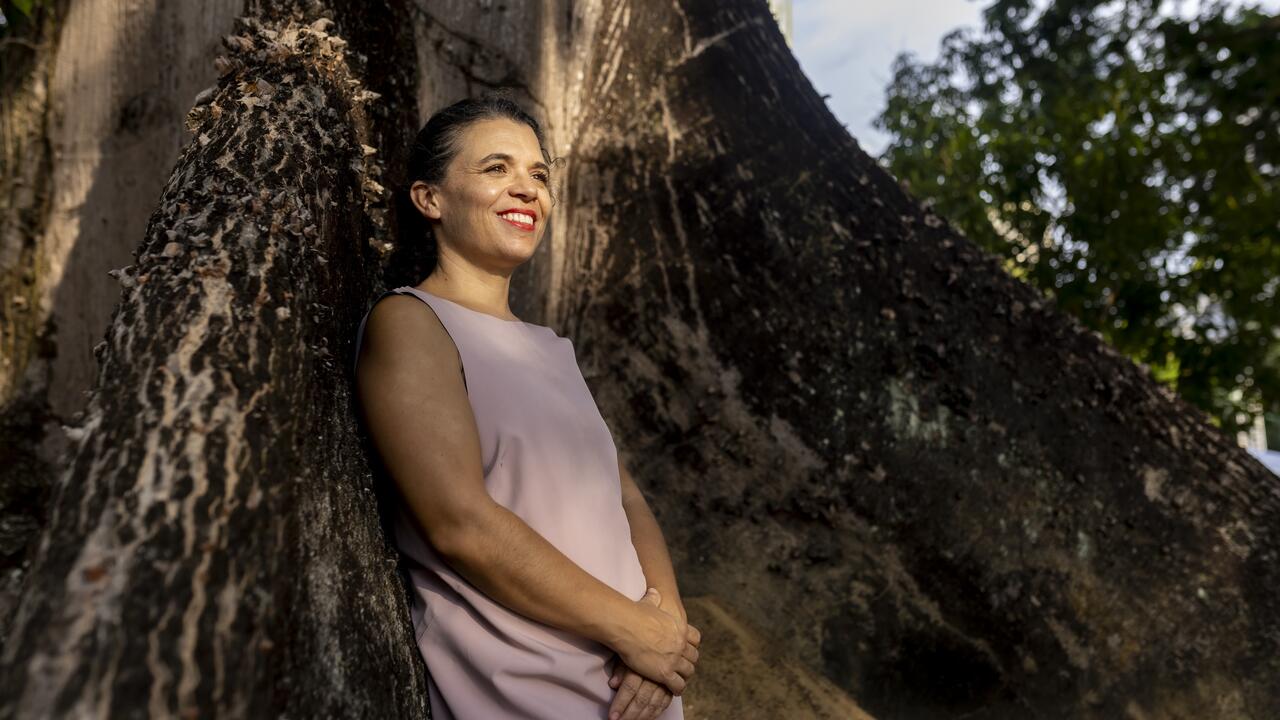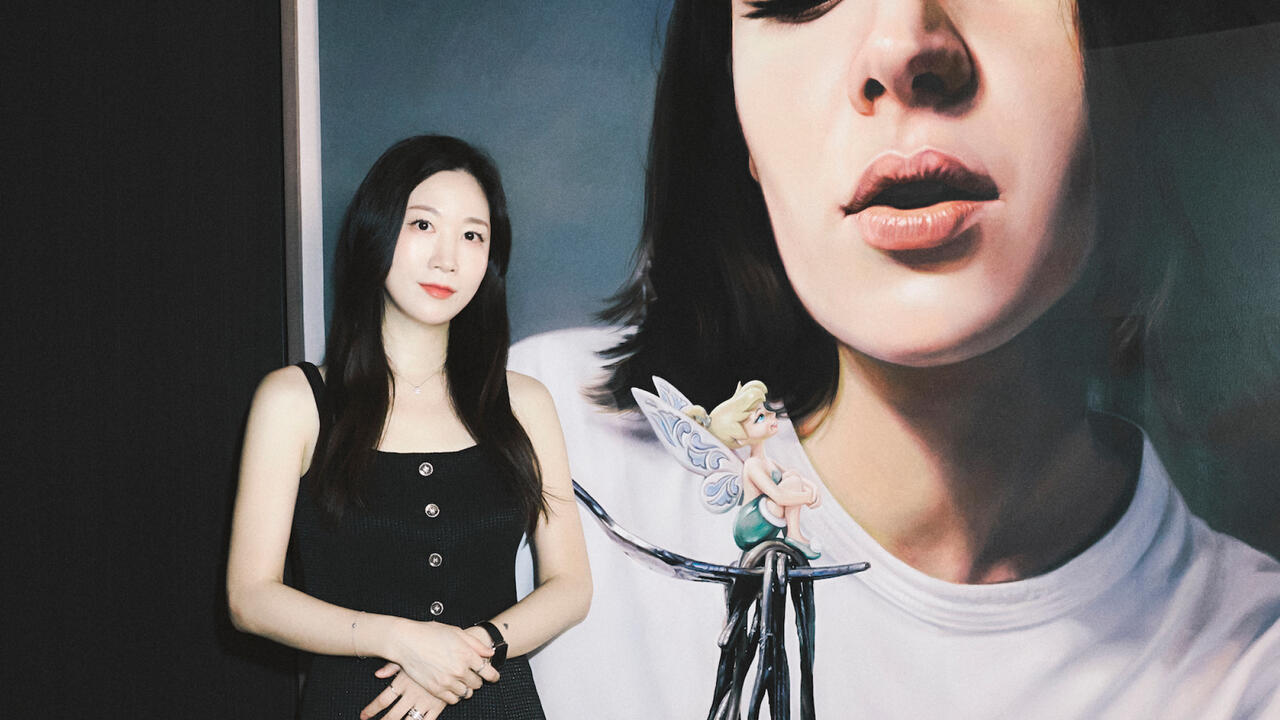Blood and Guts After High School
An interview with Art Club 2000
An interview with Art Club 2000
I get the impression that you're nostalgic for the future. What happens in the year 2000?
* Everyone learns how to talk to the animals
* Everyone is satisfied with their outfit
* We could all die tomorrow
* Well, nothing happens, really, it's a social thing
* The cool thing about the year 2000 is what might happen...
* Some things will be exciting, other things are going to change just because people expect them to
* It's more like the time before then, when people are trying to figure out what it will mean
* A millenarian is someone who thinks that the millennium will come, that the world won't end, but that the millennium is supposed to be a time of great prosperity and happiness for everyone
* Maybe
When I think about your work, the Paramount Hotel photograph always comes to mind. You're all so young and skinny and hairless and the lighting is just right. It's an erotic picture because of what's not going on. You all seem like virgins and I guess I read it as a metaphor for your project - young kids occupying a grown-up picture, kind of ambient Mouseketeers. But this youthful, adolescent posture is an art-induced hallucination, which makes it more titillating, and makes us more perverse. Do you have us just where you want us?
* No, not really
* We want you, too
* We think that room was designed for taking the picture. It makes you look like art. We were even talking about old classical paintings, like Caravaggios
* It's disgusting to watch people look at that picture deciding which one of us they want to fuck
* All anybody in the art world ever wants to know about Art Club is if we all sleep together. We took that picture to be sarcastic
Every generation's teen stars become less and less thrilled by success because success is so possible. You appear to be your own Malcolm McClaren. Is there a split between producer and product in your mind, or is producing the product?
* Who is Malcolm McClaren?
* Everyone has been saying for so long that art doesn't need galleries but no one can figure out how
* Annie Lennox's old boyfriend was on MTV the other night saying how punk rock was the greatest conceptual art ever
* Punk made it possible for anyone to start a band
* We're trying to learn how to communicate our self-criticality better, which is there, but it takes ideal viewers to see it. We haven't found them yet
* In the right situation, it seems very easy to achieve a degree of visibility in the art world today
Your dealer Colin de Land is credited on your bio as assembling Art Club 2000, not unlike The Monkees scenario. In the past he has been associated with John Dogg and J. St. Bernard. Do you think dealers have a better chance of making successful art and that a successful dealer can mimic Professor Higgins in My Fair Lady?
* Colin's not a successful dealer!
* But, really, he taught us all this stuff, he ran a weekly class for us that had guest lecturers, readings, and field trips
* The class demystified the art world, taught us all this stuff about the various mechanisms associated with the reception of an artwork
* Rather than mimicking that plot, Colin was trying to save us from those pitfalls
* It's more like Charlie's Angels - somebody giving you advice over a fucked-up speaker phone
* Rex Harrison was, like, such an egotist in My Fair Lady. Colin's not like that at all. He wanted to change the art world, it was never about his ego or success or whatever
* But Rex Harrison wound up learning so much from Audrey Hepburn
* Colin didn't like our pictures at first
* But he was really interested in talking to us about them
What kind of music would you be playing if Art Club 2000 were a band?
* Art Club 2000 is only a good name for a techno band
* We're thinking about it a lot
* We talk about how much a band can communicate with their image
* A band can really set an example
* Music is better than art
* No it's not
* Someone said we were like a band that didn't make any music, we just took photos for the album covers
In the GAP project you all wore the same ensembles. While the pictures were an obvious critique of the uniformity of mass-marketed identities, they also highlighted the need people have for hiding out in a crowd or belonging to a clique: the comfort of sameness. Can you talk about why you use the term 'club'?
* It came from the idea of a high-school art club
* It was supposed to be kind of nerdy
* We weren't trying to be professional artists, it was something to do after school or on weekends
* Plus it sounds better in different languages
'Il Gruppo Duemila'
'Le Art Club Deux Mille'
Kunst Klub Zweitausend'
* Conformity is, like, scary and exciting at the same time
* Our outfits match in pictures, but we never match from picture to picture, that's important
Is a club a replacement for a missing movement?
* We don't have to have the same kind of gravity that's attached to a movement. A club is a group that is linked by something, but it's much looser, less specific
How did your second show differ from the first?
* It was smaller and we were finished a day early, which made us think we did something wrong
* We made all our pictures vertical so they could fit into magazines more easily
* People said that they would be able to tell Art Club's market value by their next show
* But we didn't care
* The second show was also in the summer and that was cool because Colin wasn't trying to play us as rising art stars by moving us into the fall season
The photograph of you in the library (among others) has the static feel of a film still, but unlike the high theatrics of Cindy Sherman reaching into the stacks, your caricatures are incredibly subtle. The image is a perfect merger of the Pictures Generation and the Düsseldorf photographers like Candida Höfer. Can you talk about the illusion of narrative, how your audience is directed through a series of vignettes and where you fit into the continuum of photography?
* Yeah, Candida Höfer's pictures of animals were great
* Gregory Crewdson is really cool
* In that picture specifically, we were looking for paintings that corresponded to the colours of clothes we were wearing
* The most inspiring thing right now is Cindy Sherman's new work. She's the best artist anyway. Lately she's been doing stuff for Comme des Garçons: awesome postcards and posters of herself in their clothes
* That German work seems like its all done by students of those people with the water-tower photos, the Bechers, and, like, it's a 20s thing about objective social documentary, which is cool, but we'd rather document ourselves than other people
* Picture theory changed the way art photographers are looked at, or else it was symptomatic of some other conditions that were changing the way people look at pictures, and we do look at pictures that way, no problem or whatever
* But everyone does, so what
* So what
* Sometimes making the pictures seems like just practising - the posing I mean. Then it's like, practising for what? And then the photo becomes an end in itself as if it's real life.
* But we're seven so it's kind of a group perception, even though we don't agree about what we're looking at a lot of the time
* That's why photography is great, because it exposes, if you will, what artists are thinking about, looking at, or trying to look like, and it's the cheapest, quickest and most precise way of showing other people
What do you expect from the 1995 Whitney Biennial?
* More of the same
* More painting
* Laura Cottingham said in class one time that the Whitney will showcase whoever their favourite collectors and dealers want them to, and how last year's Biennial was the first to deviate from that system. The trustees got really mad and in reaction, next year's will be a million times worse
In the 80s, a group of usually uncool people suddenly discovered they could be famous like pop stars. It was quite a revelation. Now New York artists are a bit wary of the spectre of publicity, and of becoming too famous outside the institution of art. The 90s could be seen as a move back from film to theatre, to an intimate art that is often too frail to hold up in the spotlight. In a way, your pictures are a return to the 80s and the strategy of success. Are you scholars of the last ten years of art history?
* Maybe we're scholars of the last three years of art history
* We don't think about the collapse of the 80s art market, the collapse of the 90s art market is really sad - people should buy more art
* An art collector is a special, fancy animal
* There's something wrong with that star system. Collectors and gallerists and curators want a sure thing, so they make someone a star, but that's bullshit. A better investment would be to buy dozens of inexpensive works rather than one expensive one
* Doug Ashford said that the art world needs more good people doing things other than being artists, like critics and curators, people who work in galleries and stuff, but there's no money in it
* The art market has made it possible for us almost to break even sometimes
* If you get some kind of validation from the art media it can be good for sales. On the other hand, people start thinking that this thing might be something that they don't want to participate in. Everyone's afraid they're going to buy into the next Mark Kostabi
* A seven person artist doesn't have a very good likelihood of survival. It doesn't make any sense to invest in an artist that isn't one person because of the possibility of their splitting up
In the photograph Limbo Cafe 2 / Loved to Death (1994) you are reading two magazines; Newsweek with a panda bear and ArtNews with a Jeff Koons bunny on the cover. Can you talk about fame in the art world and what your inheritance is?
* The cover of the bunny magazine said 'Who is Jeff Koons and why does everyone hate him?'
* We wanted our cover to say, 'Who is Art Club and why is everyone so nice to us?'
* We've inherited a system that, at best, over-inflates one person's ego. Hopefully having seven people in a group can diffuse some of that
You've been quoted as saying you want to be the spokespeople of your generation. What is your generation? Who is the spokesperson of your generation now?
* Oh, that was a joke, Art Club is not a spokesperson
Brett Anderson of Suede got a lot of attention for a quote about his sexuality. Anderson said he was bisexual, but that he had never slept with a man. It seems as though homosexuality has been relegated to an idea, something to make celebrities more interesting. In the issue of The Face where you were featured as part of a section on Generation X, I noticed that there was no mention of homosexuality. If there is a Generation X do you think it has a gay face and do you think Art Club 2000 has a pansexual aura?
* Well, you know, there's that one character in Reality Bites who comes out to his mom and cries
* It's funny when you're a group and you get asked identity questions
* It's just that it's not polite, really
* Plus we haven't agreed on that yet
* There's no spectrum wider than that of human sexuality. Art Club 2000 can only hope to occupy one small section of it at a time
* Technically we're too young to be Generation X
In your last show you included a picture of yourselves assassinated en masse on a staircase in your school. You echoed this apocalyptic vision by knocking down a wall in your gallery which is used to announce the exhibition. Why did you kill yourselves off?
* We took that picture because blood was trendy right then
* We mimicked the strategy used to make models look hurt, fucked up, beaten, lobotomised, and sexy. It makes the object even more powerless
* It's like we're dead, but we're still making art
* Cooper Union is the new fashion location. Last Fall Harper's Bazaar shot a spread of Christy there, called 'Pure Simplicity' and Ralph Lauren has been taking pictures there too
* We copied the composition of a photo of some female textile students on a staircase at the Bauhaus
* At the same time we were thinking about the recreations in real-life peril TV shows, like I Witness Video
* Maybe we have an appetite for destruction, too
* Yeah, maybe that's why we knocked down that wall
* It was supposed to be a punk rock institutional critique
* Pretending to be fucked-up by the school somehow
* But we learned so much in art school
* We're pretending to be Art Club and we're not pretending to be anything else
* Like artists sometimes do
* We haven't killed ourselves off yet, we're still working on that













